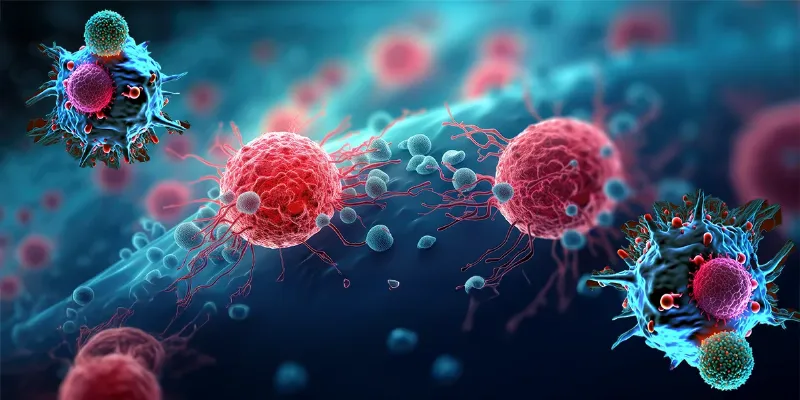A Mitochondrial Makeover: Rewiring T Cells to Supercharge Cancer Immunotherapy

29 July 2025
A team of international scientists has uncovered a novel way to boost the cancer-killing power of the immune system’s T cells—by flipping a metabolic switch deep within their mitochondria. The study, published in Nature Communications, shows that disabling a single protein—Ant2—can reprogram T cells to become significantly more potent and resilient in fighting tumors.
This discovery marks an important advance in immunometabolism, offering a glimpse into a future where cancer immunotherapy can be enhanced not just by targeting tumors, but by upgrading the internal machinery of immune cells themselves.
Rewiring the T Cell Engine
At the center of this breakthrough is Ant2 (adenine nucleotide translocase 2), a mitochondrial protein that facilitates the exchange of ADP and ATP between the mitochondria and cytoplasm—essentially fueling cellular energy demands. The research team, led by PhD student Omri Yosef, Prof. Michael Berger, Prof. Magdalena Huber, and Prof. Eyal Gottlieb, created genetically modified mice lacking Ant2 specifically in their T cells.
Without Ant2, T cells were unable to generate ATP through traditional oxidative phosphorylation. This metabolic bottleneck, rather than crippling the cells, had the opposite effect: it rewired their energy systems, pushing them toward a more anabolic, activation-ready state. The Ant2-deficient T cells exhibited enhanced activation, proliferation, and effector function—exactly the attributes needed to mount a stronger immune response against cancer.
“By disabling Ant2, we triggered a complete shift in how T cells produce and use energy,” explains Prof. Berger. “This reprogramming made them significantly better at recognizing and killing cancer cells.” In simpler terms, blocking this protein forces the immune cells to adapt their metabolism, turning them into stronger, faster, and more aggressive cancer fighters.
The Metabolic Shift
One of the most striking findings was the unexpected readiness of naïve T cells in Ant2 knockout mice. These cells displayed features typically seen in fully activated T cells: elevated mitochondrial biogenesis, increased anabolic metabolism, and higher levels of NAD+ turnover. In effect, they bypassed the usual lag time required for activation, entering a pre-armed state that allowed for faster and more effective tumor targeting.
This pre-activated metabolic profile was confirmed through detailed metabolic assays and functional tests. Compared to wild-type T cells, Ant2-deficient counterparts not only expanded more rapidly but also sustained their activity longer in tumor-bearing mice.
Beyond the genetic model, the researchers explored whether this metabolic state could be induced pharmacologically. Indeed, inhibiting ANT proteins in wild-type T cells using small molecules recapitulated the Ant2-deficient phenotype—enhancing their therapeutic efficacy in adoptive cell therapy models.
A New Frontier in Immunotherapy
The study underscores the growing recognition that cellular metabolism is not just a passive background process but a driver of immune function. As T cells enter the tumor microenvironment—often hostile, nutrient-deprived, and hypoxic—their ability to adapt metabolically can dictate therapeutic outcomes.
“This work highlights how deeply interconnected metabolism and immunity truly are,” says Prof. Berger. “By learning how to control the power source of our immune cells, we may be able to unlock therapies that are both more natural and more effective.”
While the data are preclinical, the implications are profound. The ability to pharmacologically modulate T cell metabolism could serve as a powerful adjunct to existing cancer therapies. Further studies and clinical trials will be needed to validate safety, efficacy, and the best combination strategies for integrating ANT inhibitors into immunotherapeutic regimens.











Comments
No Comments Yet!